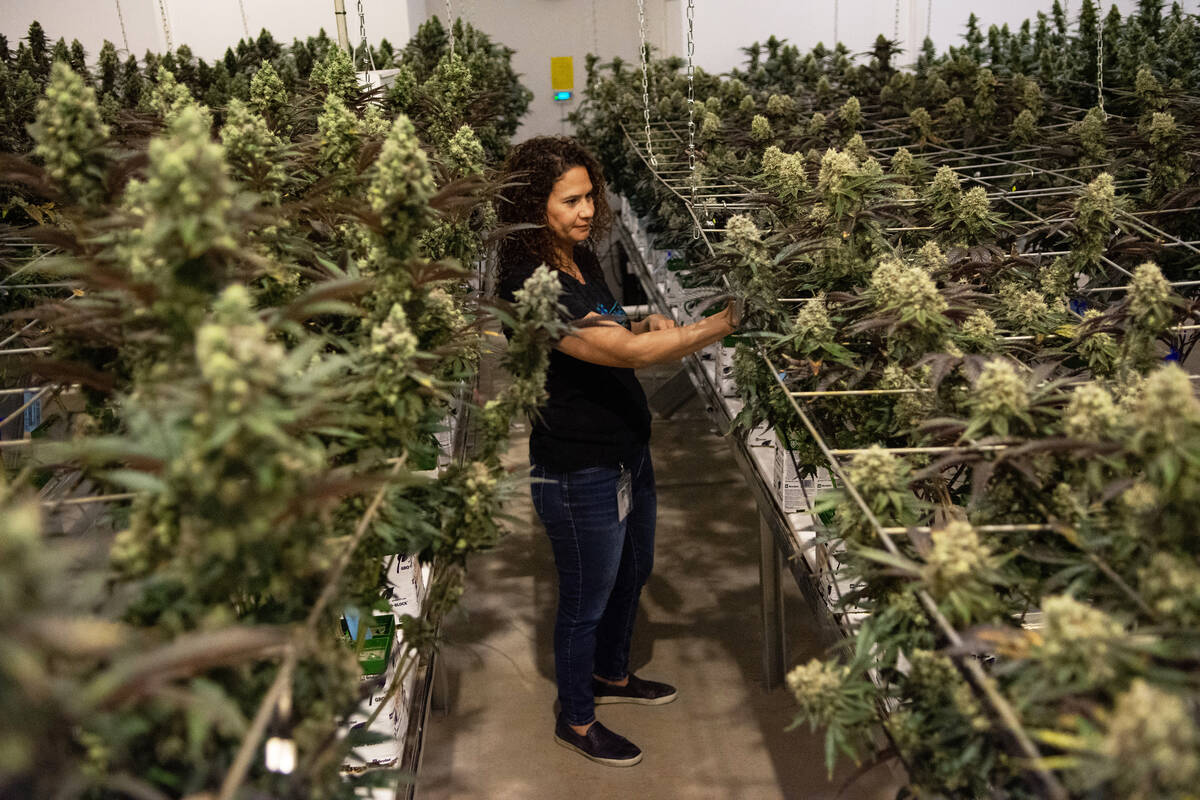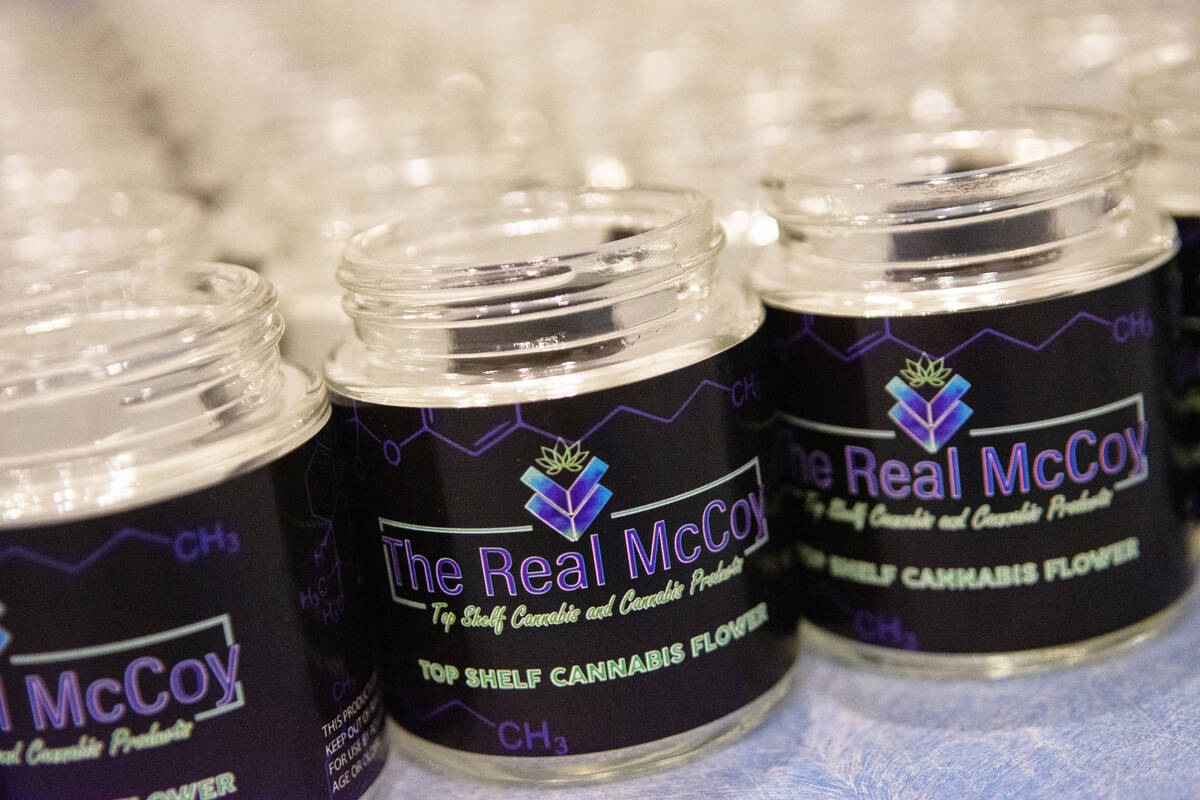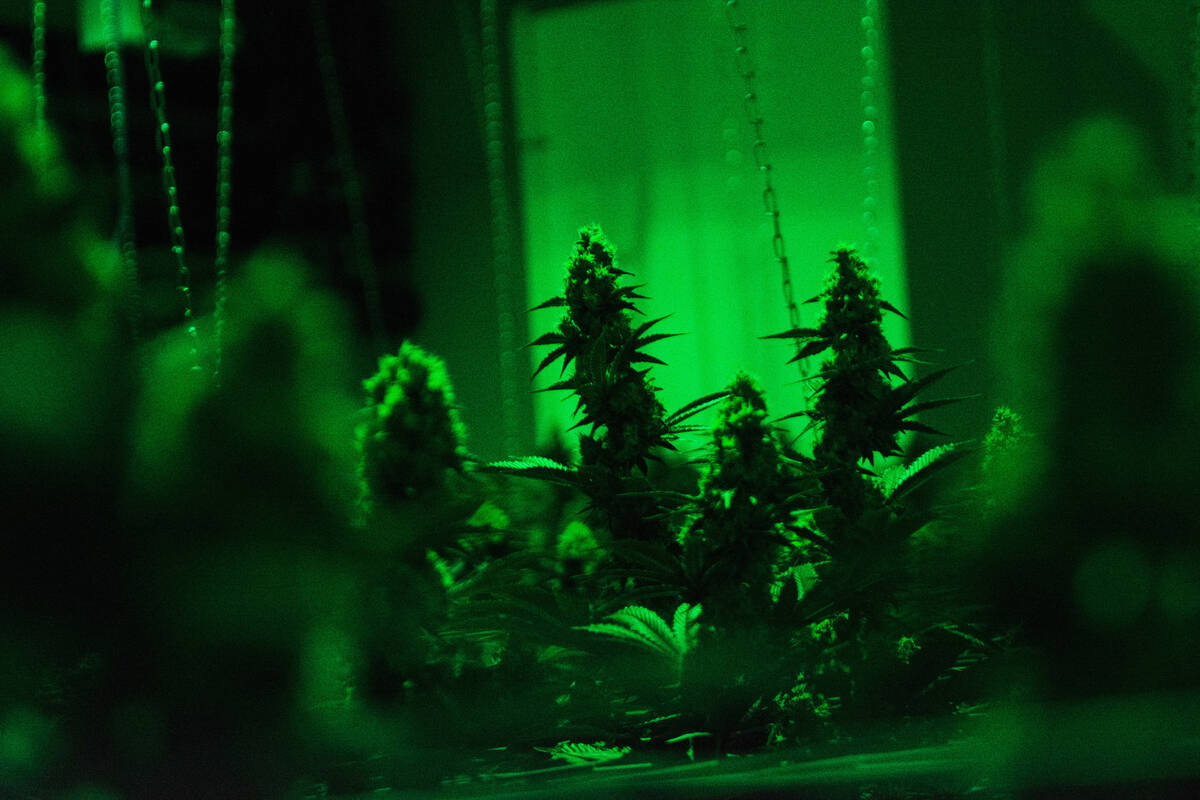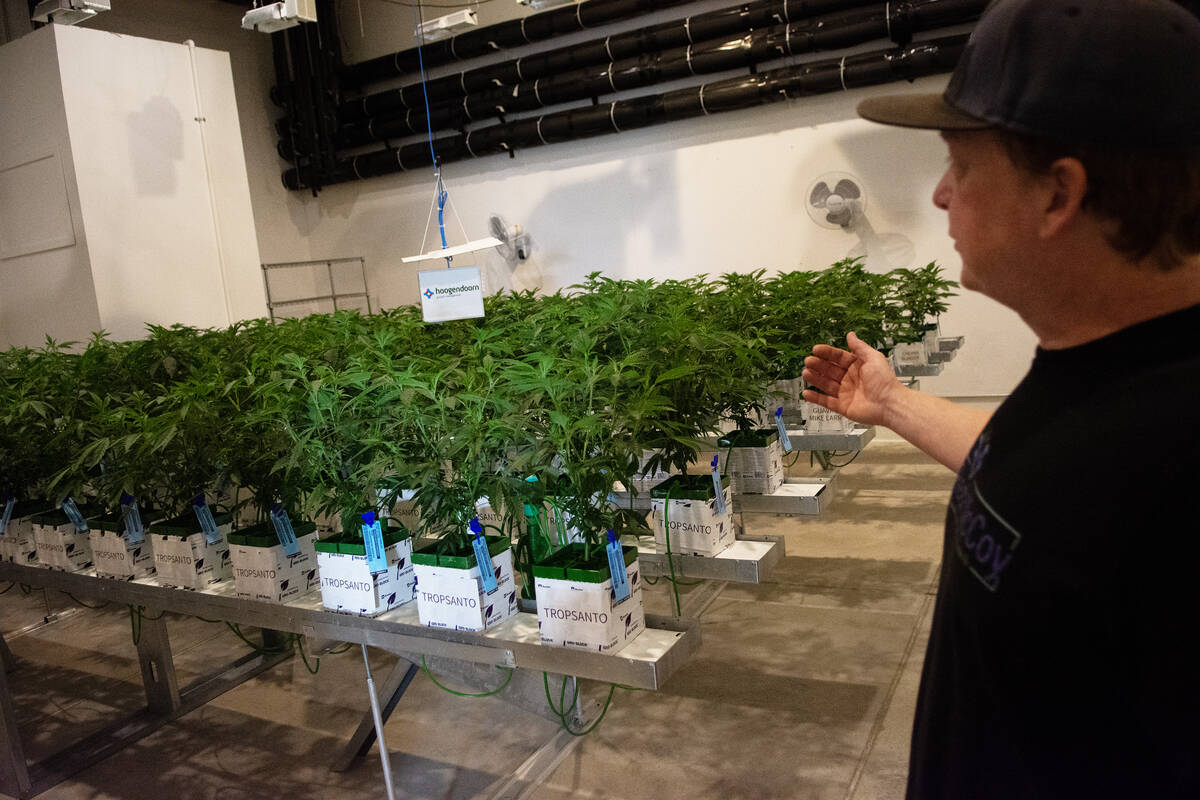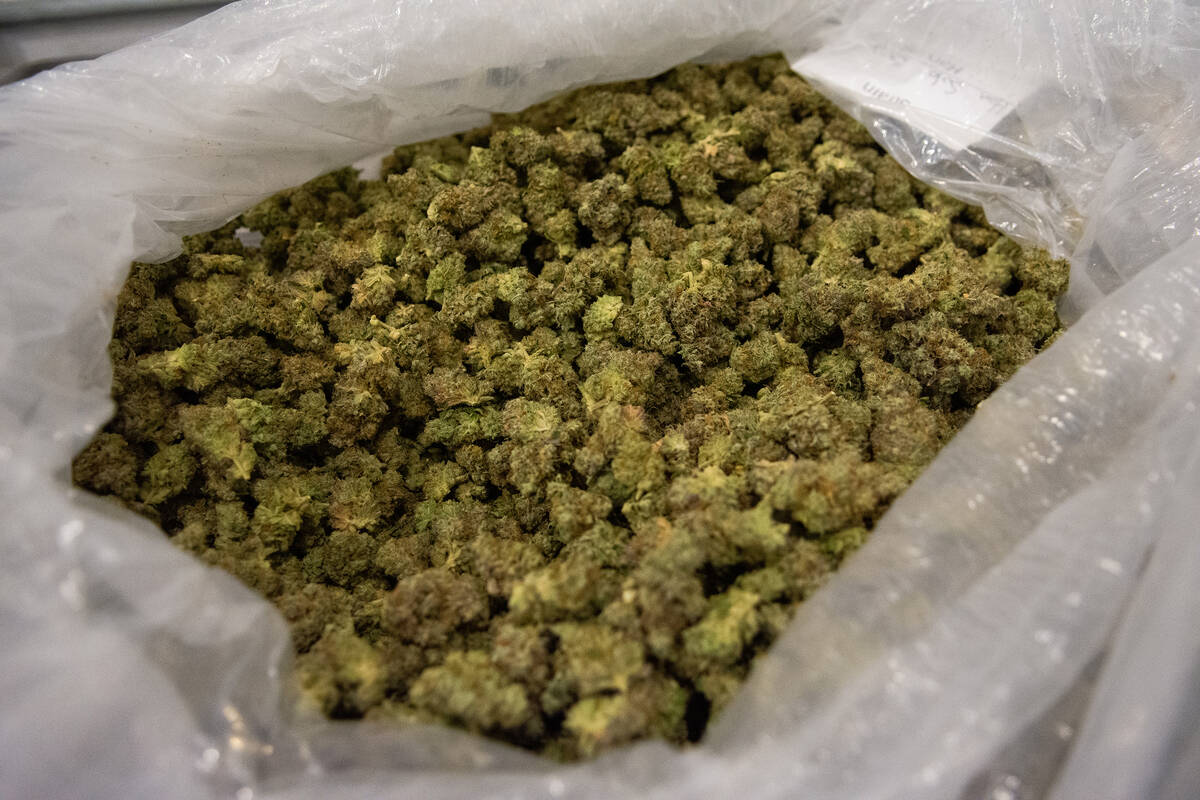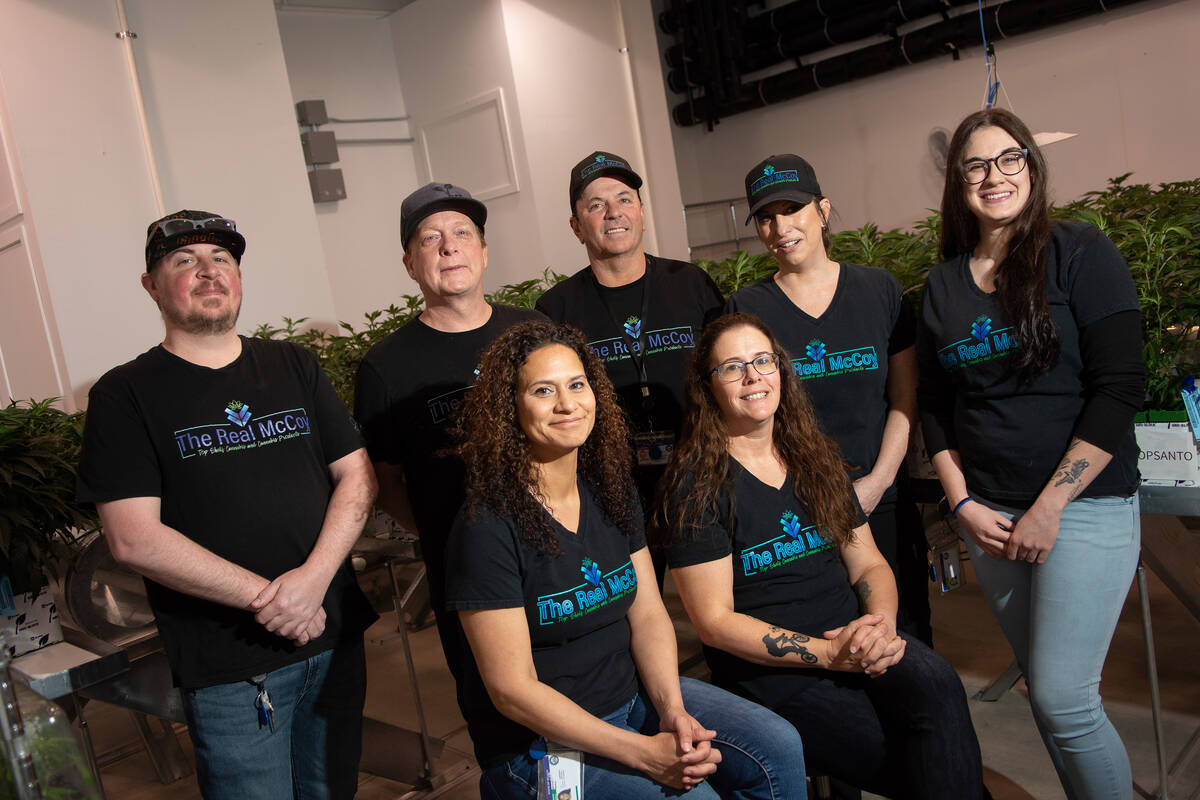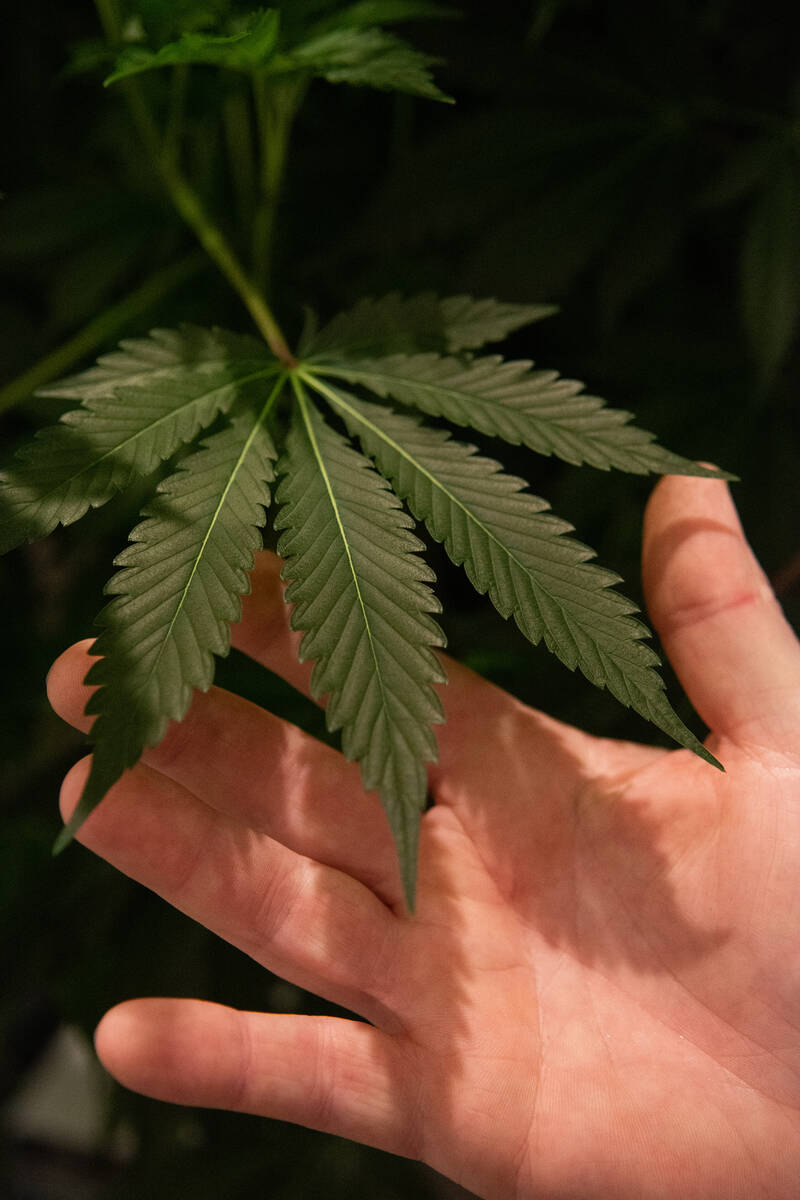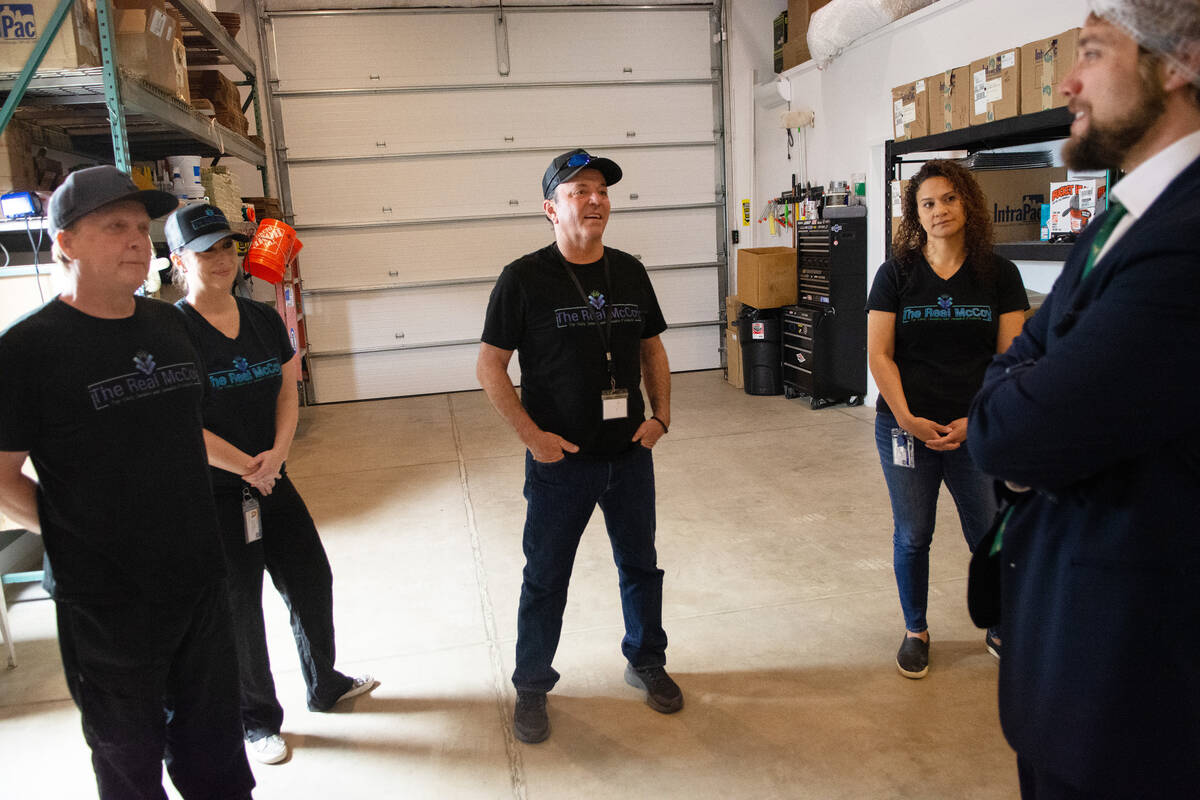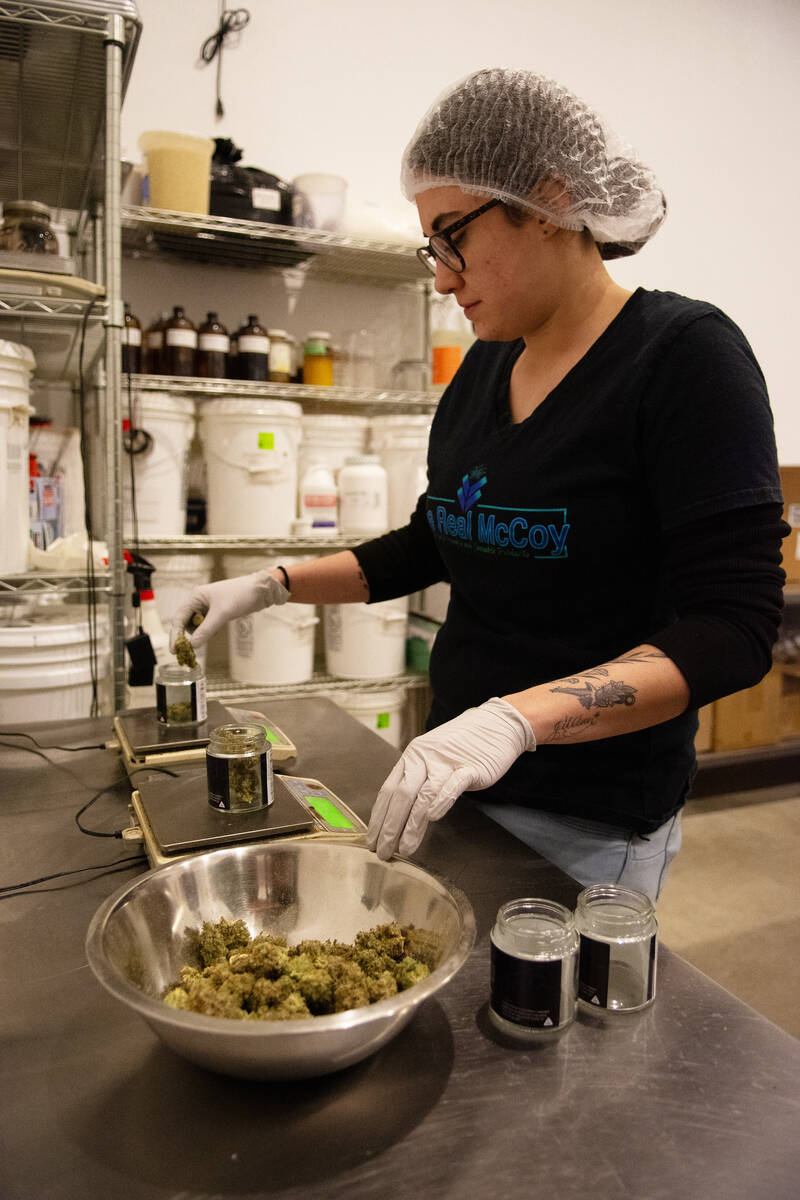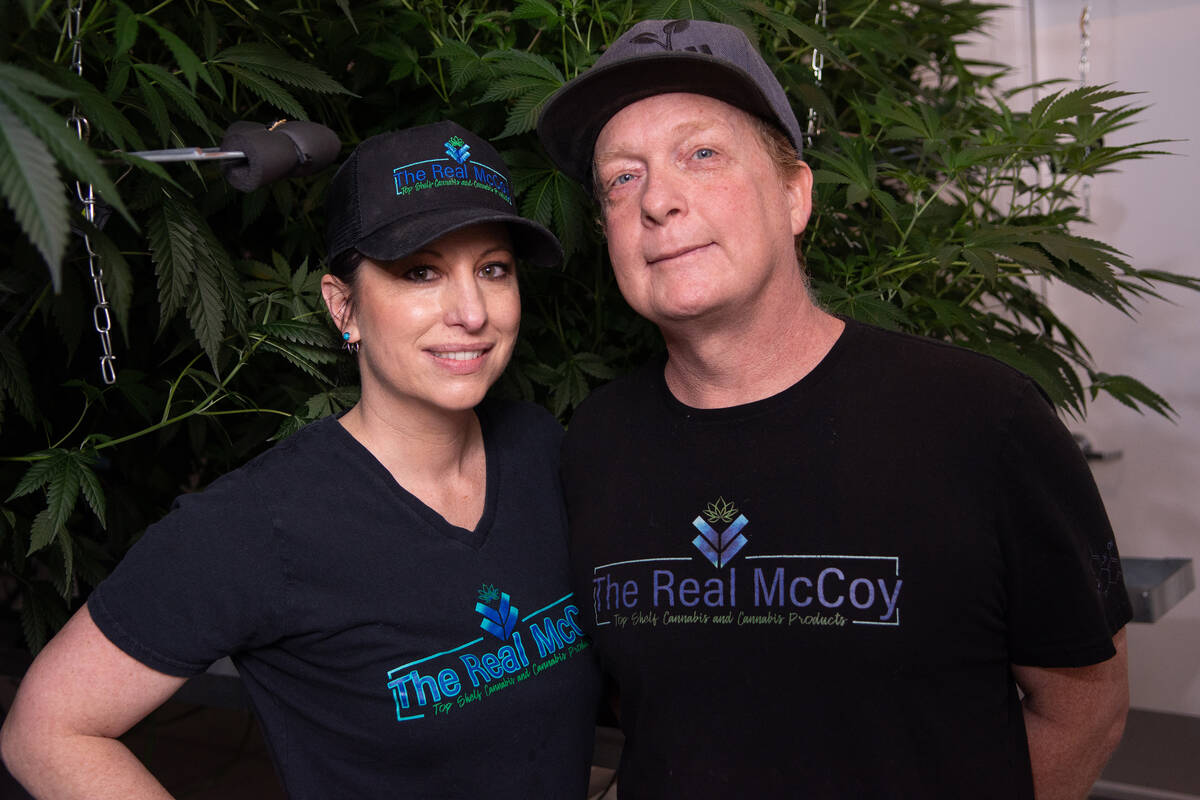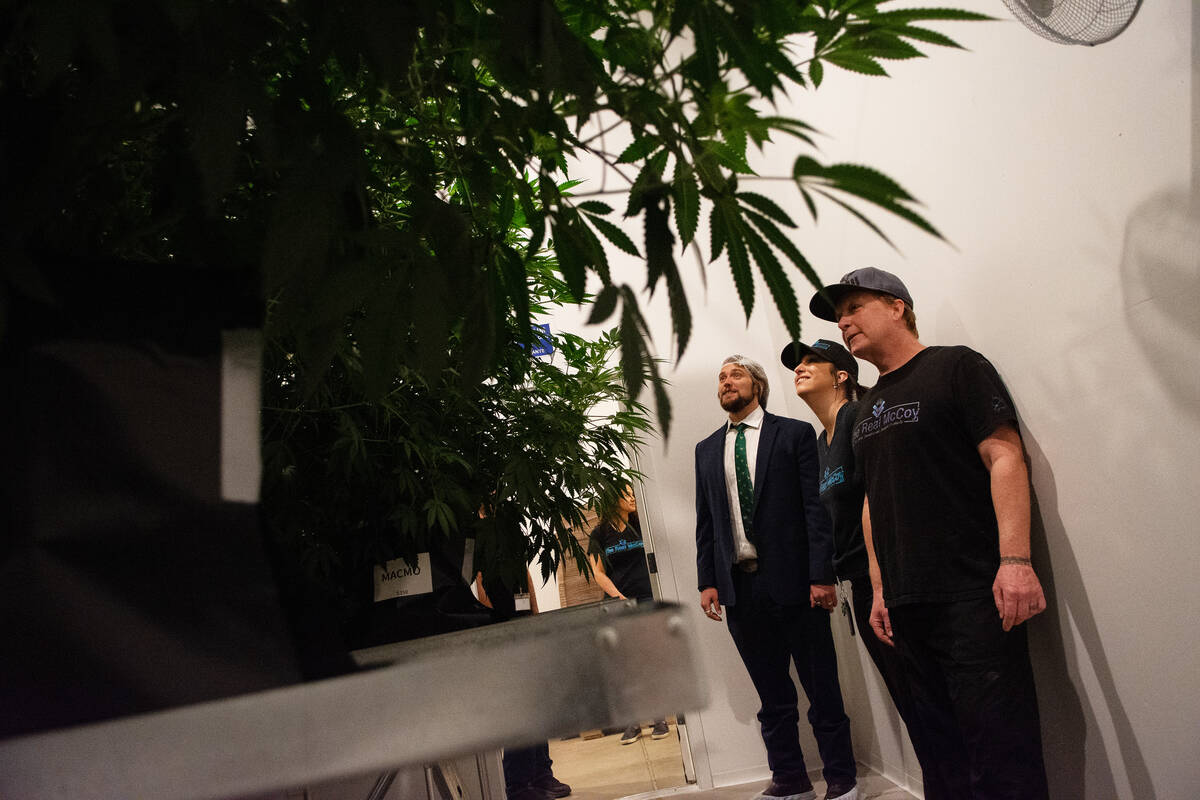Nevada marijuana cultivators say they are feeling the tax squeeze
CARSON CITY — For cannabis growers in Nevada, a bevy of hefty taxes and fees is leading many to wonder whether they’ll be able to keep their doors open.
One of the biggest problems lies in how the state calculates and imposes its 15 percent wholesale tax on cultivators, which growers say is forcing them to pay as much as double that rate.
“We won’t be around very much longer if they don’t change,” said Rick DeCarlo, co-owner of The Real McCoy, a cultivation company in Carson City. “If we have one bad month … it’d be it.”
Nevada imposes a 15 percent tax on marijuana sold by cultivators to dispensaries and production companies, with a portion of those revenues directly funding public schools in the state. In 2022, that tax generated nearly $60 million.
But the taxes cultivators pay to the state are not based on the price of the product sold to dispensaries. Rather, what they pay is based on a per-pound rate set by the state – no matter what the actual sales price is.
For smaller, independent growers, that means they are often paying an effective tax rate on their sales of closer to 25 to 30 percent. And it’s just one of the multiple costs of doing business in cannabis cultivation. Companies also are required to pay big sums to stay in compliance with a list of state regulations.
Cultivation company owners like DeCarlo say those taxes and fees are squeezing them to a point where it no longer makes sense to continue investing their own money in the business just to stay afloat.
In 2022, The Real McCoy sold $1.4 million worth of product and paid nearly $340,000 in wholesale taxes — an effective tax of roughly 24 percent.
When added together with “time and effort” charges levied by the Cannabis Compliance Board, property taxes, and costs of testing and delivery, well over half of the company’s total revenue went to taxes or required fees. And unlike other businesses, cannabis companies are not able to write off their operating expenses for federal tax purposes, because the federal government still considers marijuana an illegal drug.
“The perception is as though we’re billionaires, and we’re our own cartel, and we’re drug dealers, and we’re making all this money on all this weed. That’s not the case,” said Mina Mafua, CEO of The Real McCoy. “Our second year, our sales fell off, and our taxes increased.”
They’re not alone. In 2022, Nevada cannabis retail sales dropped more than 15 percent. But wholesale taxes paid to the state dropped just 6.7 percent.
Cannabis companies in Nevada worry about the short- and long-term future — views that were starkly reflected in an August survey by the The Las Vegas Medical Marijuana Association.
In that survey, 57 percent said their sales were not even covering their costs of business, and 47 percent said sales had dropped by at least 30 percent from 2021.
“One of the misconceptions is that the industry is a cash cow. The sales have been anywhere from $900 million to $1 billion. But the costs are so high in this industry, and almost everyone is losing money,” said John Laub, the president of the association. “It’s not the gold mine that everyone thought it was. It’s another business, but it’s a very tough, competitive and highly regulated business that competes with the black market.”
Compounding the issue for growers, there is no mechanism in place that guarantees they are paid by dispensaries and production companies on time — or at all.
Dispensaries and production facilities often go several months before making their payments, and in at least one case, more than a year, according to Sarah Rosenfeld, CEO of MMG Agriculture in Reno.
Growers, though, are required to pay taxes to the state each month or face a hefty penalty fee, whether they have been paid for their sales or not. For independent cultivation companies like Rosenfeld’s, that usually means having to inject more personal cash into the company each month in order to avoid those late fees and other penalties that can add up over time.
“People who don’t have extra cash go out of business. And then when you get tired of putting your own money or your family’s money or your investor’s money into your business, you just close,” Rosenfeld said.
How wholesale is calculated
The Department of Taxation sets what it calls a “fair market value” for cannabis flower and other products on the wholesale rate. For cannabis flower, which makes up the majority of the cannabis market, that rate was set at $2,074 per pound for the second half of 2022. That translated to a wholesale tax of $311 per pound of cannabis flower sold by growers, or 15 percent of that fair market value.
But cultivators say the actual going rate of cannabis flower on the market is closer to $800 to $1,000 per pound, meaning that many cultivators are paying closer to a 30 percent effective tax on their products, while those selling premium and luxury cannabis products above that value are paying substantially less than 15 percent.
Nevada’s wholesale tax initially was set up similarly to the wholesale tax of Colorado, one of the first two states to legalize cannabis in the U.S.
Colorado also uses a fair market value calculation, which the state calls an average market rate. Where it differs is that in Colorado, that rate is only applied to transactions between cultivators and dispensaries that are owned by the same company in order to ensure there is tax revenue coming from those transactions and transfers.
Third-party cultivators in Colorado pay a 15 percent tax based on the actual price of the product they sell. The fair market value is only levied on transactions between cultivators and an associated dispensary or manufacturing facility.
Colorado’s average market rate hovered around $2,000 per pound a few years after legalized sales started in January 2014 but quickly declined as more businesses came online and more product hit the market, driving prices down. As of Jan. 1, Colorado’s average market rate sat at $658, according to the Colorado Department of Revenue.
Nevada’s fair market value sat at a similar $2,145 when legal sales started in July 2017. But unlike Colorado, Nevada’s rate remained unusually stable. It wasn’t until January of this year that the rate fell below $2,000 per pound for the first time ever in Nevada.
The industry is now looking to the state Legislature for help.
Potential changes on the horizon
One bill has been introduced this legislative session that would cap fees and penalties that the Cannabis Compliance Board is able to charge. A potentially heavier lift may await in trying to revamp the wholesale tax structure.
Will Adler, director of the Sierra Cannabis Coalition, said the goal is that Nevada will follow the lead of California, which last year eliminated the tax on cultivators in hopes of jumpstarting the Golden State’s spiraling market that saw wholesale prices collapse and left growers unable to make a profit. To compensate for the loss in tax revenue earmarked for education in Nevada, the 10 percent tax paid by consumers at the retail level could be increased slightly, he said.
Doing that would solve two problems — lessening the burden on cultivators while eliminating the late payment issue — Adler said.
Others, like Nevada Cannabis Association Executive Director Layke Martin, believe that smaller, incremental changes that would allow Nevada’s fair market value to actually reflect average cannabis wholesale prices like Colorado’s model could solve some of the issues without completely overhauling the tax structure.
A bill addressing the wholesale tax could be introduced in the coming weeks in the Legislature. The Department of Taxation declined to comment for this story and referred requests to Gov. Joe Lombardo’s office. Elizabeth Ray, the governor’s spokeswoman, said in an emailed statement that the office will “monitor all bills as they work through the legislative process.”
Contact Colton Lochhead at clochhead@reviewjournal.com. Follow @ColtonLochhead on Twitter.



